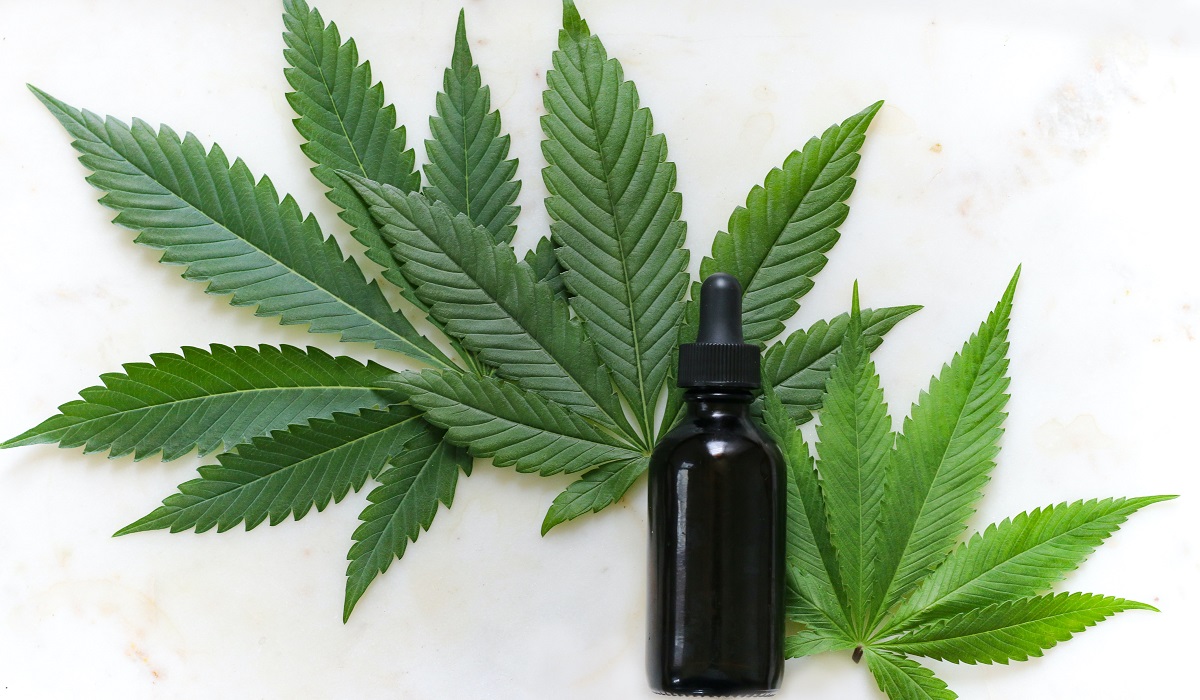
As the popularity of cannabidiol (CBD) continues to rise, so do the questions surrounding it. One of the most frequently asked questions is, “Is CBD addictive?” It’s understandable, as CBD is a derivative of the cannabis plant, which also produces the psychoactive compound, tetrahydrocannabinol (THC). This article aims to dispel any misconceptions, using medical data to shine light on the truth about CBD and addiction.
What is CBD? Unraveling the Basics and Beyond
Cannabidiol, more commonly known as CBD, has gained significant attention in recent years. Despite its widespread use and recognition, understanding what CBD is and how it works is crucial for its safe and effective use.
CBD: A Natural Compound
Cannabidiol is a naturally occurring compound found in the resinous flower of cannabis, a plant with a rich history of medicinal use dating back thousands of years. It is one of over a hundred cannabinoids found in the cannabis plant, the most famous of which is delta-9-tetrahydrocannabinol (THC). THC is renowned for its psychoactive properties – it’s the compound responsible for the “high” associated with recreational marijuana use.
In contrast, CBD is not psychoactive. This means that it does not produce the mind-altering effects that THC does, making it an appealing option for those seeking the potential therapeutic benefits of cannabis without the associated high.
How CBD Works in the Body
The human body has an intricate system known as the endocannabinoid system (ECS) that plays a critical role in maintaining physiological balance or homeostasis. The ECS has two main types of receptors, CB1 and CB2, which are found throughout the body.
Interestingly, CBD does not directly interact with either of these receptors. Instead, it seems to work by preventing the breakdown of the body’s own endocannabinoids, thereby allowing them to have a greater effect. It may also bind to other receptors in the body, such as the serotonin and vanilloid receptors, which can influence pain perception and mood.
CBD: A Versatile Compound
CBD’s ability to interact with multiple systems in the body has made it a subject of interest for numerous therapeutic applications, from pain management and anxiety reduction to potential uses in addiction treatment and neurodegenerative disorders.
As research continues, we are likely to uncover even more about this versatile compound and its range of potential applications. It’s important to note, however, that while the existing research is promising, further studies are needed to fully understand the implications and potential of CBD use. Always consult with a healthcare provider before beginning a CBD regimen.
Medical Understanding of Addiction
The World Health Organization (WHO) defines addiction as a complex condition, a brain disease that is manifested by compulsive substance use despite harmful consequences. Common signs of addiction include increased tolerance, withdrawal symptoms, and a persistent desire to use the substance despite the negative repercussions.
CBD and the Brain
To understand if CBD is addictive, we need to consider how it interacts with the brain. Unlike THC, which binds directly with the CB1 receptors in the brain to produce a euphoric effect, CBD interacts differently with the endocannabinoid system (ECS). CBD prevents the breakdown of a compound called anandamide, which helps regulate functions like sleep, pain, and immune-system responses. By enhancing anandamide’s availability, CBD helps to naturally balance the ECS without causing psychoactive effects.
Current Medical Data on CBD and Addiction
According to the medical data available, CBD does not meet the criteria for addictive substances. A comprehensive review published in 2017 in the journal “Addiction” found that CBD was non-addictive, and even suggested that it could help treat individuals suffering from substance abuse disorders.
CBD’s Non-Addictive Nature
Several features of CBD help to confirm its non-addictive nature:
1. Lack of Euphoria: As mentioned earlier, CBD does not produce a euphoric effect, which is often a contributing factor in substance abuse and addiction.
2. Absence of Withdrawal Symptoms: In studies on CBD use, participants didn’t show typical withdrawal symptoms when they stopped using the compound.
3. No Evidence of CBD Tolerance: Unlike other substances where the body develops a tolerance over time requiring increased doses, research hasn’t shown this to be the case with CBD.
Understanding the Brain’s Reward System
The brain’s reward system plays a crucial role in addiction. Substances like opioids, nicotine, or alcohol can hijack this system, leading to addiction. They trigger a flood of dopamine — the “feel good” neurotransmitter — causing a pleasurable “high.” Over time, the brain adjusts to these dopamine surges, reducing its production or the number of receptors that can receive and respond to it. This leads to tolerance, requiring higher doses of the substance to achieve the same feeling.
CBD and the Brain’s Reward System
Unlike substances known to be addictive, CBD doesn’t stimulate an excess release of dopamine. Its interaction with the brain’s reward system is considerably different. It impacts the ECS — a system responsible for maintaining homeostasis in the body — but it doesn’t trigger the same dopamine surge that typically results in addiction. In fact, it often acts more as a regulator, helping maintain balance in the ECS.
Lack of Withdrawal Symptoms with CBD
One of the key indicators of substance addiction is the onset of withdrawal symptoms when stopping use. With addictive substances, the body gets used to their presence and reacts negatively when the substance is abruptly removed. Symptoms can range from irritability and anxiety to more severe physical symptoms like seizures.
However, according to a comprehensive review of CBD by the World Health Organization, CBD exhibits no effects indicative of any abuse or dependence potential in humans. Withdrawal symptoms aren’t commonly seen with CBD, reinforcing the perspective that CBD is non-addictive.
No Build-up of Tolerance with CBD
Another characteristic of addictive substances is the development of tolerance, requiring more of the substance to achieve the desired effect. Research on CBD indicates that users do not build a tolerance to its effects. A study published in “Cannabis and Cannabinoid Research” even found evidence of reverse tolerance, where repeated use of CBD could lead to needing less of the substance over time to achieve the same therapeutic effect.
CBD and Potential Anti-Addictive Effects
Interestingly, CBD has been explored for potential anti-addictive effects. Preliminary research suggests that CBD could help manage symptoms in individuals struggling with opioid, cocaine, and psychostimulant addiction. It’s believed that CBD can modify circuits in the brain related to drug addiction, reducing drug cravings and anxiety.
A study in “Addictive Behaviors” found that smokers using a CBD inhaler smoked fewer cigarettes and had reduced nicotine cravings. Another study in the “American Journal of Psychiatry” suggested that CBD could reduce cue-induced cravings and anxiety in individuals with heroin use disorder.
While these initial findings are promising, further research is necessary to fully understand CBD’s role in addiction treatment.
The current medical data strongly suggests that CBD is not an addictive substance. It doesn’t affect the brain’s reward system in the same way as known addictive substances, it doesn’t lead to withdrawal symptoms, and users don’t seem to develop a tolerance to it. More so, it may even have potential therapeutic benefits in treating certain addictions. However, as with all substances, individuals are advised to consult with healthcare professionals when considering the use of CBD.
Potential Therapeutic Uses of CBD: A Deeper Dive
The potential therapeutic applications of CBD are vast, thanks to its interaction with the endocannabinoid system (ECS) – a complex network that maintains the body’s homeostasis, influencing functions such as sleep, pain, mood, and immune response.
CBD for Pain Management
One of the most well-known uses of CBD is in managing chronic pain. Numerous studies have indicated that CBD may help reduce pain by impacting endocannabinoid receptor activity and reducing inflammation. A review in the “European Journal of Pain” noted that CBD applied on the skin could help lower pain and inflammation due to arthritis, without evident side-effects.
CBD and Anxiety Disorders
CBD has been studied for its potential role in treating various mental health disorders, including anxiety. A study published in “The Permanente Journal” found that CBD could help reduce anxiety levels and improve sleep quality. The research highlighted CBD’s potential as a safe treatment option for anxiety, including post-traumatic stress disorder (PTSD).
CBD in Neurological Disorders
There’s also growing interest in CBD’s potential benefits for neurodegenerative disorders like Alzheimer’s disease and multiple sclerosis. Animal and test-tube studies have shown that CBD may decrease inflammation and help prevent the neurodegeneration associated with Alzheimer’s disease.
For multiple sclerosis, a report published in “Frontiers in Neurology” cited CBD’s potential in reducing fatigue, pain, and spasticity while improving mobility.
CBD in Substance Addiction Treatment
As mentioned earlier, CBD’s potential role in addiction treatment is being explored, with promising results. It’s thought that CBD can impact the circuits in the brain related to drug addiction. Studies have suggested that CBD could help treat opioid, cocaine, and psychostimulant addiction.
One study published in “Addictive Behaviors” showed that smokers who used inhalers containing CBD smoked fewer cigarettes than usual and had no further cravings for nicotine. Another review published in the “American Journal of Psychiatry” highlighted CBD’s potential in reducing cue-induced cravings and anxiety in individuals with heroin use disorder.
CBD and Cancer-Related Symptoms
CBD may also help alleviate symptoms related to cancer and side effects related to cancer treatment, like nausea, vomiting, and pain. A study in the “Journal of Pain and Symptom Management” showed that an extract containing both THC and CBD was significantly more effective in reducing pain and improving sleep quality in cancer patients than standard treatments alone.
In summary, CBD’s potential therapeutic benefits are broad and diverse. However, it’s important to stress that while these results are promising, more human studies are needed to fully understand the range and efficacy of CBD’s therapeutic applications. Always consult with a healthcare provider before integrating CBD into your treatment regimen.
World Health Organization’s Stance on CBD
The WHO’s Expert Committee on Drug Dependence (ECDD) concluded that, in its pure state, CBD does not appear to have abuse potential or cause harm, thereby reinforcing its non-addictive nature. The committee further stated that CBD, in its pure state, should not be scheduled within the International Drug Control Conventions.
Conclusion
Although research is ongoing, current medical data suggests that CBD is not addictive. It interacts differently with our brain’s receptors compared to addictive substances, does not create euphoria, and doesn’t lead to tolerance or withdrawal. The evidence points towards CBD being a non-addictive substance, with potential therapeutic properties for treating certain addictions. However, as with all substances, it’s recommended that individuals consult with their healthcare providers before beginning a CBD regimen.
Remember, the field of CBD research is relatively new, and there may be new findings in the future that will provide even more insight into the benefits and risks of CBD. Always ensure you’re up-to-date with the latest scientific literature and regulatory guidelines on CBD usage in your region.






